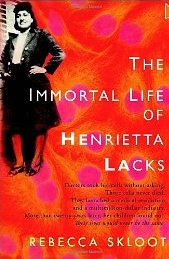
January 21st, 2011 by Paul Auerbach, M.D. in Book Reviews, Opinion
Tags: Dr. Paul Auerbach, Heading Outdoors Eventually Leads Within, healthline, hiking, Kathy and Craig Copeland, Medicine for the Outdoors, Outdoor Medicine, Outdoors and Health
No Comments »

 “Heading Outdoors Eventually Leads Within” is a small book written by Kathy and Craig Copeland and published through their company, HikingCamping.com. Here’s a summary from the website:
“Heading Outdoors Eventually Leads Within” is a small book written by Kathy and Craig Copeland and published through their company, HikingCamping.com. Here’s a summary from the website:
Everyone walks. What distinguishes hikers is that walking does more than transport us, it transforms us. But nowhere is the thoughtful undercurrent of hiking celebrated. The wisdom we glean from the wilds is a match lit in the rain. That’s why we created this book: to cup our hands around the flame. These journal entries are the mental waypoints we recorded while hiking 30,000 miles / 48,280 km (more than the circumference of the Earth) through wildlands worldwide. Accompanying them are photos of the places (primarily the Canadian Rockies, Utah canyon country, and New Zealand) where we conceived and noted the initial ideas. We hope our words and images compel you to recognize, voice, own and honour the thoughts arising from within while heading outdoors. Doing so will deepen your fulfillment. A truly adventurous life is contemplative as well as vigourous.
It is important for me to state at the outset that my opinions, like those expressed in most book reviews, are highly personal. What I write about “Heading Outdoors Eventually Leads Within” are my impressions, and you may not agree with them. I am beginning with this comment because I truly had mixed feelings about the book. There were parts that seemed right on target, for me personally, and parts that seemed to miss the mark. I am certain that the authors have great pride in their work, and they are to be congratulated for their efforts. Read more »
This post, Book Review: Heading Outdoors Eventually Leads Within, was originally published on
Healthine.com by Paul Auerbach, M.D..
January 13th, 2011 by Harriet Hall, M.D. in Book Reviews, Research
Tags: Anti-Vaccine Movement, Bacterial Infection, Dr. Harriett Hall, Epidemiology, Flu Deaths, Flu Epidemic, Flu Vaccine, Flu Virus, Homeopathy, Immunology, Infectious Disease, Influenza, John M. Berry, Pneumonia, Public Health, Science and Medicine, Science Based Medicine
No Comments »

 One of our readers suggested that I review the book The Great Influenza: The Epic Story of the Deadliest Plague in History, by John M. Barry. It’s not a new book (it was published in 2004) but it is very pertinent to several of the issues that we have been discussing on this blog, especially in regards to the current anti-vaccine movement. It’s well worth reading for its historical insights, for its illumination of the scientific method, and for its accurate reporting of what science has learned about influenza.
One of our readers suggested that I review the book The Great Influenza: The Epic Story of the Deadliest Plague in History, by John M. Barry. It’s not a new book (it was published in 2004) but it is very pertinent to several of the issues that we have been discussing on this blog, especially in regards to the current anti-vaccine movement. It’s well worth reading for its historical insights, for its illumination of the scientific method, and for its accurate reporting of what science has learned about influenza.
In the great flu epidemic of 1918, influenza killed as many people in 24 weeks as AIDS has killed in 24 years. It’s hard to even imagine what that must have been like, but this book helps us imagine it. It tells horror stories: Children found alone and starving beside the corpses of their parents in homes where all the adults had died, decomposing bodies piling up because there was no one left who was healthy enough to bury them.
Sometimes the disease developed with stunning rapidity: During one three-mile streetcar trip, the conductor, three passengers, and the driver died. In another incident, apparently healthy soldiers were being transferred to a new post by train: During the trip, men started coughing, bleeding, and collapsing; and by the time it arrived at its destination, 25 percent of the soldiers were so sick they had to be taken directly from train to hospital. Two-thirds of them were eventually hospitalized in all, and 10 percent of them died. The mind boggles. Read more »
*This blog post was originally published at Science-Based Medicine*
January 5th, 2011 by Toni Brayer, M.D. in Better Health Network, Book Reviews, Opinion, Research
Tags: Cardiology, Cell Biology, Cervical Cancer, Cloning, Diabetes, Dr. Toni Brayer, Endocrinology, Everything Health, First Human Cell Line, Gene Mapping, Genetics, Heart Disease, HeLa Cells, In Vitro Fertilization, Infectious Disease, IVF, Johns Hopkins Hospital, Medical Research, MS, Multiple Sclerosis, Neurology, Oncology, Polio Vaccine, Rebecca Skloot, Science In Medicine, The Immortal Life Of Henrietta Lacks
No Comments »

 If you like science, true history, and an engaging story, pick up the new book by journalist Rebecca Skloot, “The Immortal Life of Henrietta Lacks” and prepare for a great read. I knew nothing about the young black woman whose cells were taken back in 1951 by a scientist at Johns Hopkins Hospital and how those cells have revolutionized modern cell biology and research.
If you like science, true history, and an engaging story, pick up the new book by journalist Rebecca Skloot, “The Immortal Life of Henrietta Lacks” and prepare for a great read. I knew nothing about the young black woman whose cells were taken back in 1951 by a scientist at Johns Hopkins Hospital and how those cells have revolutionized modern cell biology and research.
The HeLa (named after HEnrietta LAcks) cells were taken as she lay dying on the “colored” ward at Johns Hopkins Hospital of aggressive cervical cancer at age 30. Everyone who studies basic cell biology has heard of HeLa cells because they were the first human cell line to be successfully grown in culture and they are alive today. HeLa cells were sent to researchers all across the globe and have been used to develop the polio vaccine, viruses, cloning, gene mapping and in-vitro fertilization. Billions of the same immortal HeLa cells are used by researchers fighting cancer, multiple sclerosis, heart disease, and diabetes. Read more »
*This blog post was originally published at EverythingHealth*
January 3rd, 2011 by Davis Liu, M.D. in Book Reviews, Health Policy
Tags: Clayton Christensen, Dr. Davis Liu, Dr. Jason Hwang, Dr. Jerome Grossman, Fixing American Healthcare, General Medicine, Healthcare reform, New U.S. Healthcare System, Saving Money and Surviving the Healthcare Crisis, Solution For Health Care, The Innovator's Prescription
1 Comment »

 The best book on health care reform — or surviving it — is the “The Innovator’s Prescription: A Disruptive Solution for Health Care.” The decade worth of research spent understanding, studying, and ultimately offering solutions to make the health care system more accessible, higher quality, and affordable is clear.
The best book on health care reform — or surviving it — is the “The Innovator’s Prescription: A Disruptive Solution for Health Care.” The decade worth of research spent understanding, studying, and ultimately offering solutions to make the health care system more accessible, higher quality, and affordable is clear.
Unlike other books, the authors, respected Harvard Business School (HBS) professor Clayton Christensen, Jerome Grossman, a doctor who also was the Director of Health Care Delivery Policy Program at Harvard Kennedy School, and Jason Hwang, another doctor and graduate of the MBA program at HBS, avoid the traps the plague most other solutions by taking a completely different perspective by looking at other industries where products and services offered were “so complicated and expensive that only people with a lot of money can afford them, and only people with a lot of expertise can provide or use them.” Yet convincingly through plenty of examples, it shows how telephones, computers, and airline travel moved from only accessible to those with the resources to become available and affordable to all.
The book tackles every aspect of health care and asks how will those in health care be disrupted and subsequently surpassed by other providers which deliver care that is more convenient, higher quality, and lower cost. Read more »
*This blog post was originally published at Saving Money and Surviving the Healthcare Crisis*
December 30th, 2010 by Harriet Hall, M.D. in Better Health Network, Book Reviews, Opinion, Research
Tags: Biography Of Cancer, Chemotherapy, Dr. Harriett Hall, Dr. Siddhartha Mukherjee, Gleevec, Oncogenes, Oncology, Science Based Medicine, War Against Cancer
No Comments »

 Myths and misconceptions about cancer abound. Oncologists are frequently criticized for torturing patients by burning, cutting and poisoning without making any real progress in the war against cancer. Siddhartha Mukherjee, an oncologist and cancer researcher, tries to set the record straight with his new book The Emperor of All Maladies: A Biography of Cancer.
Myths and misconceptions about cancer abound. Oncologists are frequently criticized for torturing patients by burning, cutting and poisoning without making any real progress in the war against cancer. Siddhartha Mukherjee, an oncologist and cancer researcher, tries to set the record straight with his new book The Emperor of All Maladies: A Biography of Cancer.
It is a unique combination of insightful history, cutting edge science reporting, and vivid stories about the individuals involved: The scientists, the activists, the doctors, and the patients. It is also the story of science itself: How the scientific method works and how it developed, how we learned to randomize, do controlled trials, get informed consent, use statistics appropriately, and how science can go wrong. It is so beautifully written and so informative that when I finished it I went back to page one and read the whole thing again to make sure I hadn’t missed anything. I enjoyed it just as much the second time. Read more »
*This blog post was originally published at Science-Based Medicine*
 “Heading Outdoors Eventually Leads Within” is a small book written by Kathy and Craig Copeland and published through their company, HikingCamping.com. Here’s a summary from the website:
“Heading Outdoors Eventually Leads Within” is a small book written by Kathy and Craig Copeland and published through their company, HikingCamping.com. Here’s a summary from the website:


















